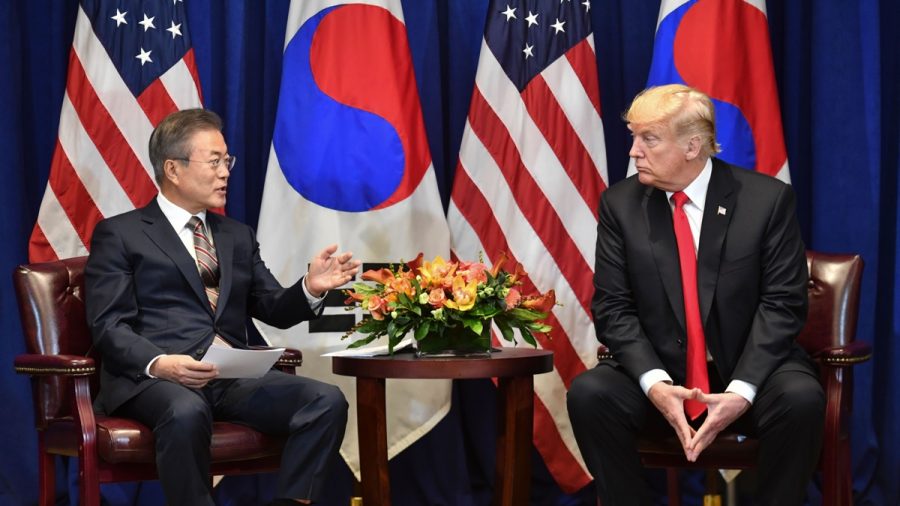WASHINGTON—South Korean President Moon Jae-in is planning to visit the United States and meet with President Donald Trump on April 10-11. Experts believe that it’s important for the United States and South Korea to maintain a consistent position in dealing with North Korea (DPRK) while facing the deadlock on the denuclearization negotiation.

This will be the seventh summit between the two leaders, and the first meeting since the Trump-Kim Hanoi summit. The main topics of the summit are expected to include North Korea’s denuclearization, strengthening the U.S.-South Korea alliance, and establishing a permanent peace mechanism on the Korean peninsula.
Former White House National Security Council Chief of Staff Fred Fleitz said that North Korea is very good at driving a wedge between their adversaries. While facing a deadlock on denuclearization negotiations, it is important for the United States and South Korea to maintain a consistent position.

“We have to stay together, we don’t want South Korea moving ahead of the United States,” said Fleitz. We don’t want South Korea making deals with the North before the North has made the appropriate concessions that it’s suppose to make. And it’s hard because I think the South Korean government is too eager for an agreement with the North.”

During a Congressional hearing last week, Randy Schriver, the Pentagon’s top Indo-Pacific policy official, said that America’s door is still open for diplomacy.

Admiral Philip Davidson, the Commander of the U.S. Indo-Pacific Command, said that China had not been helpful in imposing maritime sanctions on North Korea.
Fleitz believes that if North Korea refuses to continue negotiations, the United States should resume its pressure on the DPRK, and China as well.
“We need to, at the same time, pressure China to not let up the economic pressure on North Korea, not to cheat on the UN sanctions that it has been enforcing since 2017,” said Fleitz.
Additional Sanctions
When asked at a press conference in Palm Beach, Florida, why additional North Korea-related sanctions were overturned, President Trump said he felt they were unnecessary at this time.
“They are suffering greatly in North Korea,” said Trump. “They’re having a hard time in North Korea. And I just didn’t think additional sanctions at this time were necessary. It doesn’t mean I don’t put them on later, but I don’t—I didn’t think that additional sanctions at this time were necessary.”
President Trump also said that he understands and maintains a good relationship with Kim Jong Un.
“And I think, because of the relationship—relationship being a good thing, not a bad thing—I think it’s very important that you maintain that relationship at least as long as you can.
“But we get along very well. We have a good understanding. So I didn’t think that those sanctions were necessary at this time.”

